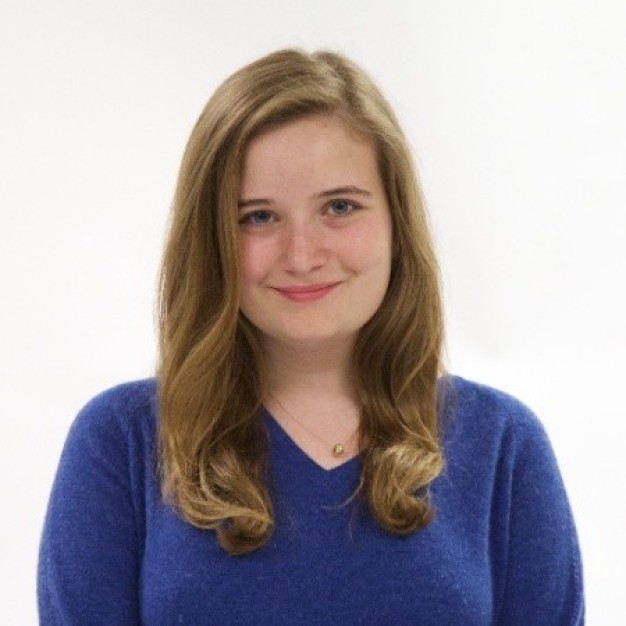Featured Fellow: Tessa Bangs (2023-2024 Friends of the APS Short-Term Fellow)
The Library & Museum at the American Philosophical Society supports a diverse community of scholars working on a wide-range of projects in fields including early American history, history of science and technology, and Native American and Indigenous Studies, among others. Read on to learn more about some of our fellows and their research at the APS. Additional information about our fellowship programming and other funding opportunities can be found here.
Briefly describe your research project:
I study the creation of institutions of knowledge in the early republic. I am particularly interested in how institution-builders defined the nation, publicness, institutional form, a usable past, and knowledge in this process and in their material products.
What collections did you use while working at the APS?
I primarily focused on the Institutional Archives (APS.Archives)—I went through all of Record Group II, folder by folder!
- Additionally, I went through the following:
- The APS Minutes
- Transactions of the American Philosophical Society
- Historical and Literary Committee Records
- Several items from the Miscellaneous Manuscript Collection, 1668–1996
- The John Vaughan Papers
- The George Ord Collection
- The Wistar Association Collection
- The APS Archives: Manuscript Communications
- The APS Archives: Verbal Communications
- The APS Archives: VIII.1. Committee Record
- The APS Archives: XII. History
- The Philological Society Papers
- The Philadelphia Museum Company Minutes
- The New Sweden Records
- St. Andrew’s Society of Philadelphia Minutes and Accounts, 1749–1843
What’s the most interesting or most exciting thing you found in the collections?
I was constantly excited while going through Record Group II in particular; one general theme that really intrigued me was realizing how many Transactions submissions were rejected—and how measured and careful the committee reports doing the rejecting were! On top of that, there were two documents that really stuck out to me, both also having to do with the question : How did these institution-builders define knowledge?
The first was the February 10, 1812 Opinion of Peter Stephen DuPonceau upon Right of APS to Lease Rooms in Philosophical Hall. In short, the APS was considering whether to let rooms to a painter. In order to do so, they had to consider whether they were even able to, as an 1805 act by the Legislature of Pennsylvania granted them rights to the lot for the sole purpose of promoting useful knowledge.
As such, DuPonceau asked: Is painting useful knowledge? As he considered this question, he defined the classes of knowledge as he saw them, arguing that knowledge could be useful, ornamental, or some combination of the two. His definitions were as follows:
- “By useful knowledge I understand that which has for its direct object the supplying of the necessities and providing for the comforts and conveniences of social life. Such are agriculture, mechanics, the mathematics, natural philosophy and a variety of other arts and sciences.”
- “Ornamental knowledge is that the results of which are only subservient to the luxury and pleasures of them. Such are music, poetry, and other arts of a similar description.”
Yes, he noted, painting and drawing might be ornamental, but they are also “auxiliary to a multitude of the most strictly useful arts & sciences,” including architecture, ship-building, and usage in demonstrating instruction in sciences. As such, DuPonceau resolved, painting is probably a mix of the two types of knowledge.
Interestingly, DuPonceau also argued for the relation of art and science: “I make no distinction here between arts and sciences, for arts are nothing else than science reduced to practice; every science has a kindred art, every art theoretically considered, is a science.”
For the purposes of this question, DuPonceau argued that painting could be considered part of the useful knowledge mandate. It turned out that the only thing the Legislature required was a tangential relation to the objects of the Society, but this thought experiment proved very helpful and exciting for my research!
The other document that really stuck out to me was in the APS Archives “History” record group; specifically within DuPonceau’s 1840 History. There was a debate involving Members Joshua Francis Fisher and Jared Sparks over the true founding of the APS, going back to the two Juntos. In order to resolve this, a committee utilized the Society’s Institutional Archives to essentially create a chart to fact-check. They went through the Junto minutes and recorded who had attended each meeting, as well as when the first mention of “Junto” appeared. This stressed to me how these institutional leaders were defining the processes of knowledge—ascertaining it, accrediting it—in their publications, but also in their internal deliberations. Furthermore, it’s an interesting look at the history-making that goes on both internally and externally: in history-writing, in archive-keeping, and more.
Do you have any tips or suggestions for future fellows or researchers?
The Institutional Archives Record Group II are incredible to go through! The Brown Bag lunches are also wonderful—as both an attendee and a presenter.
Any suggestions for must-see places or things to do in Philadelphia?
At first thought: the parks and the Book Trader!
Tessa Bangs (Friends of APS Short-Term Fellow) is a Ph.D. candidate in Communications at Columbia University. Her work falls within the intersection of the history of the book, history of education, and American studies. She researches the formation of institutions of knowledge in the U.S. Northeast in the early national and antebellum periods, considering how the development of these institutions and their larger infrastructure encompassed and entrenched definitions of publicness, historical narratives of the nation, claims about place-based identities, and delineations of knowledge and education -- as well as who was allowed to produce, legitimate, and receive each. She received her B.A. in American Studies from the University of Notre Dame, and previously worked in journalism.

